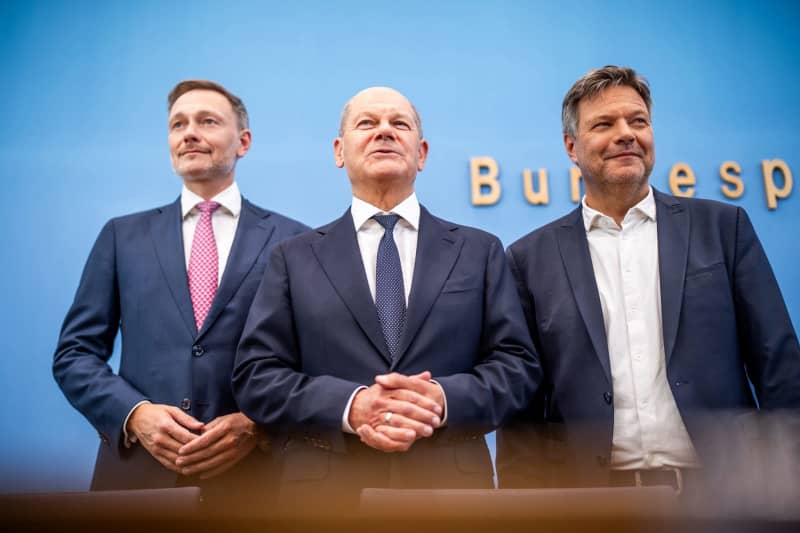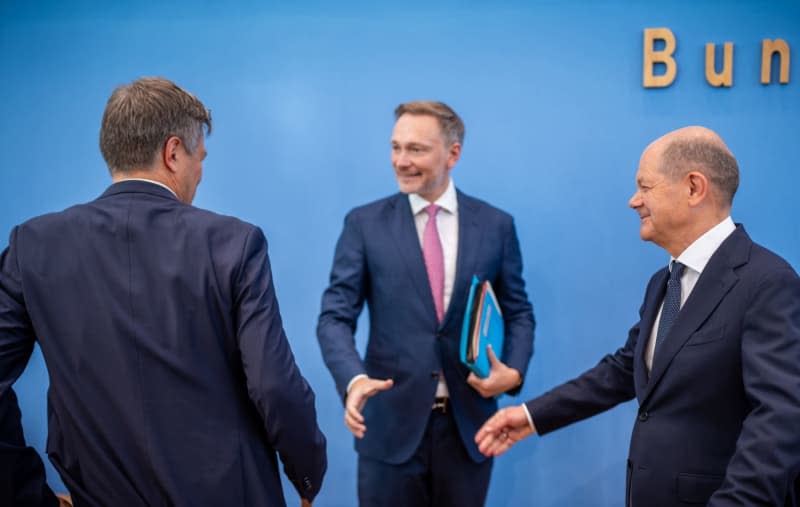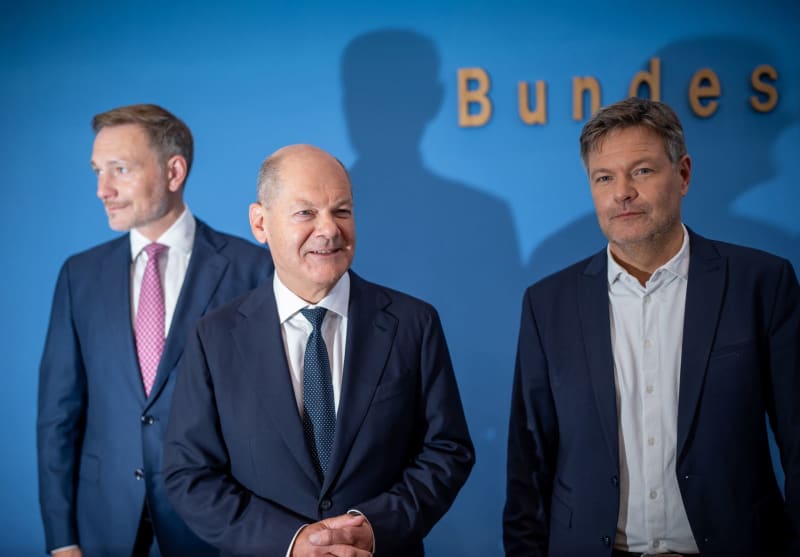The leaders of Germany’s three-party coalition reached a breakthrough in negotiations over the 2025 state budget on Friday, dpa learned from government sources.
Coalition leaders also reached a preliminary agreement on a financial plan to secure additional economic growth of more than 0.5% in the coming year, worth an estimated €26 million ($28 million).
Sources told dpa that the coalition plans to implement strict rules against budget deficits, the so-called debt brake, counting on a significant increase in economic output and a supplementary budget to compensate for shortfalls in government spending.
The breakthrough came after weeks of negotiations between German Chancellor Olaf Scholz of the Social Democratic Party (SPD), Vice Chancellor and Economy Minister Robert Habeck of the Greens and Finance Minister Christian Lindner of the pro-business Free Democratic Party (FDP).
The biggest stumbling block is the billion-euro deficit in government spending. Lindner’s FDP refuses to lift the debt brake to allow for additional borrowing and investment, while the SPD rules out cuts to social security.
Sources told dpa that the new agreement includes a supplementary budget totaling €11 billion to close the gap, which should compensate for lower-than-expected tax revenues and higher government spending.
After a final round of consultations took place on Thursday evening, Scholz and Habeck met with their factions on Friday morning to discuss the details of the deal.
Leaders originally wanted to reach an agreement by Wednesday, but now want to present a budget at a cabinet meeting on July 17.
To meet the deadline, a preliminary agreement was necessary, as drafting the budget law normally takes about 10 days.
The Bundestag, the lower house of the German parliament, is expected to begin deliberations on the draft budget in mid-September, with approval possible in November or December.
Growth plan for Germany
The coalition’s new financial plan aims to revive the German economy, which has been struggling since the coronavirus pandemic, with businesses pulling back on investments and private consumption stalling.
Business associations have long complained about barriers to growth such as high tax burdens, shortages of skilled workers and excessive bureaucracy.
Left-wing critics blame the debt brake, which was added to the German constitution in 2009 as a result of the financial crisis, and which is preventing key investments in infrastructure and education.
While the debt brake remains in place, the new agreement aims to address several issues and thus stimulate further growth.
Employer contributions to pensions and unemployment insurance for employees already receiving a pension will in future be paid directly as wages. In this way, incentives are provided to increase employment under the plans.
Social security expenditure will be increased by ‘start-up financing’. This will encourage the long-term unemployed to retain a larger part of their income in the first year of their new job, without losing their benefits.
In addition, tax-free allowances will be increased and the income tax rate will be adjusted for inflation, government sources said. A tax exemption for overtime will also be introduced.
The coalition government also plans to reduce bureaucracy within government departments and “streamline” data protection to reduce the administrative burden on small businesses.
The new EU supply chain directive also needs to be swiftly transposed into national law, while special depreciation deductions should also be introduced for commercially used electric vehicles.
More spending on child welfare
According to government sources, the preliminary agreement on the 2025 national budget also includes significant increases in child welfare spending.
The emergency child benefit for families in need will increase by €5 ($5.40) in 2025, while the government plans to invest €2 billion over the next two years to improve the quality of daycare centres and maintain support for voluntary childcare services.
According to government sources, Family Minister Lisa Paus is pleased with the outcome, which protects child welfare spending despite Lindner’s austerity targets.
Opposition: Knockout only ‘postponed’
According to Markus Söder, a leading opposition figure from the CSU (Christian Social Union) in Bavaria, the deal will not be enough to fundamentally turn around the German economy, nor to reverse the fortunes of the crisis-hit coalition.
“I don’t think that will be enough. The knockout is just postponed,” he said.
Söder said the opposition would discuss the details of the agreement in the Bundestag, but criticised the coalition partners for their lack of a governing philosophy.
“It is not enough for fundamental change,” he concluded.











